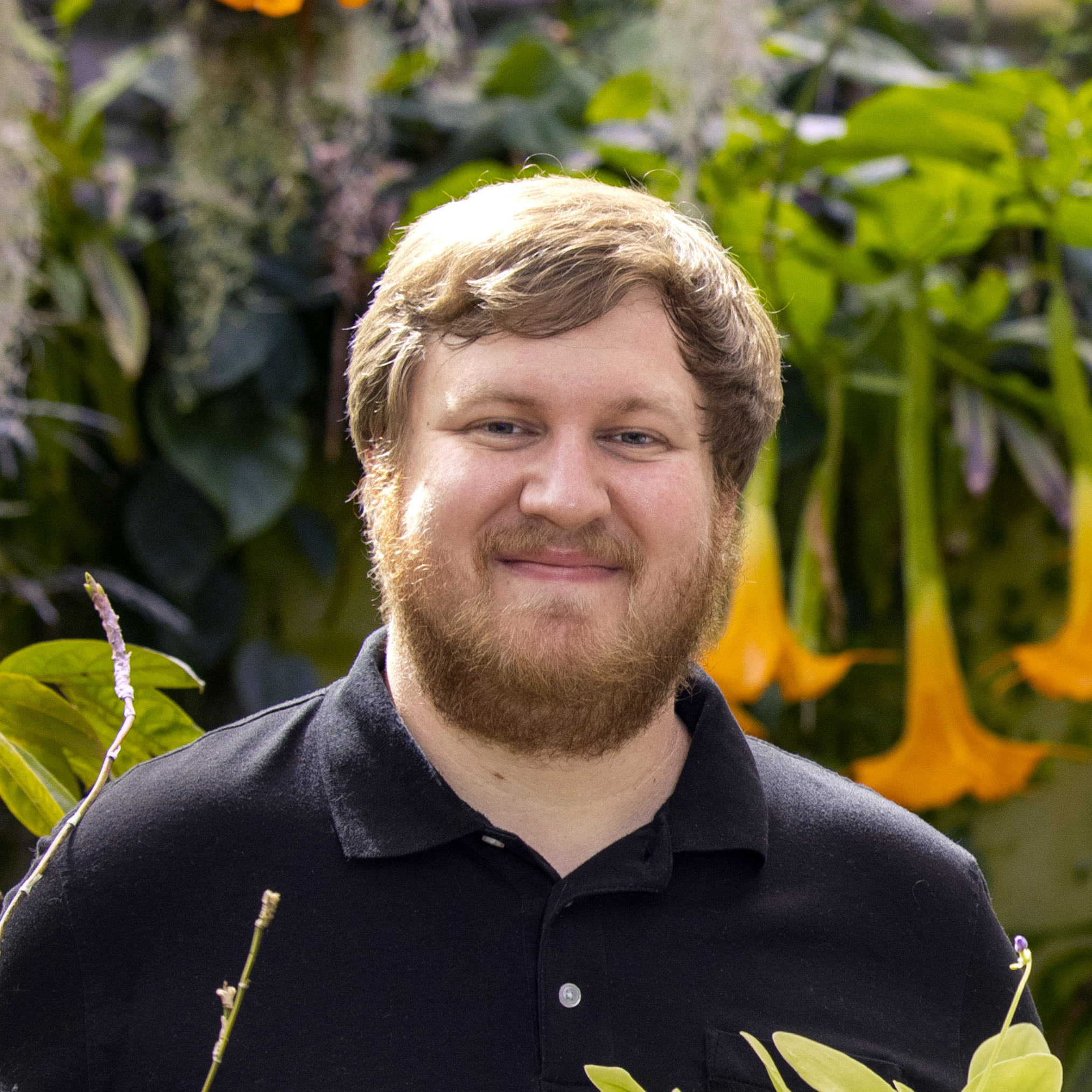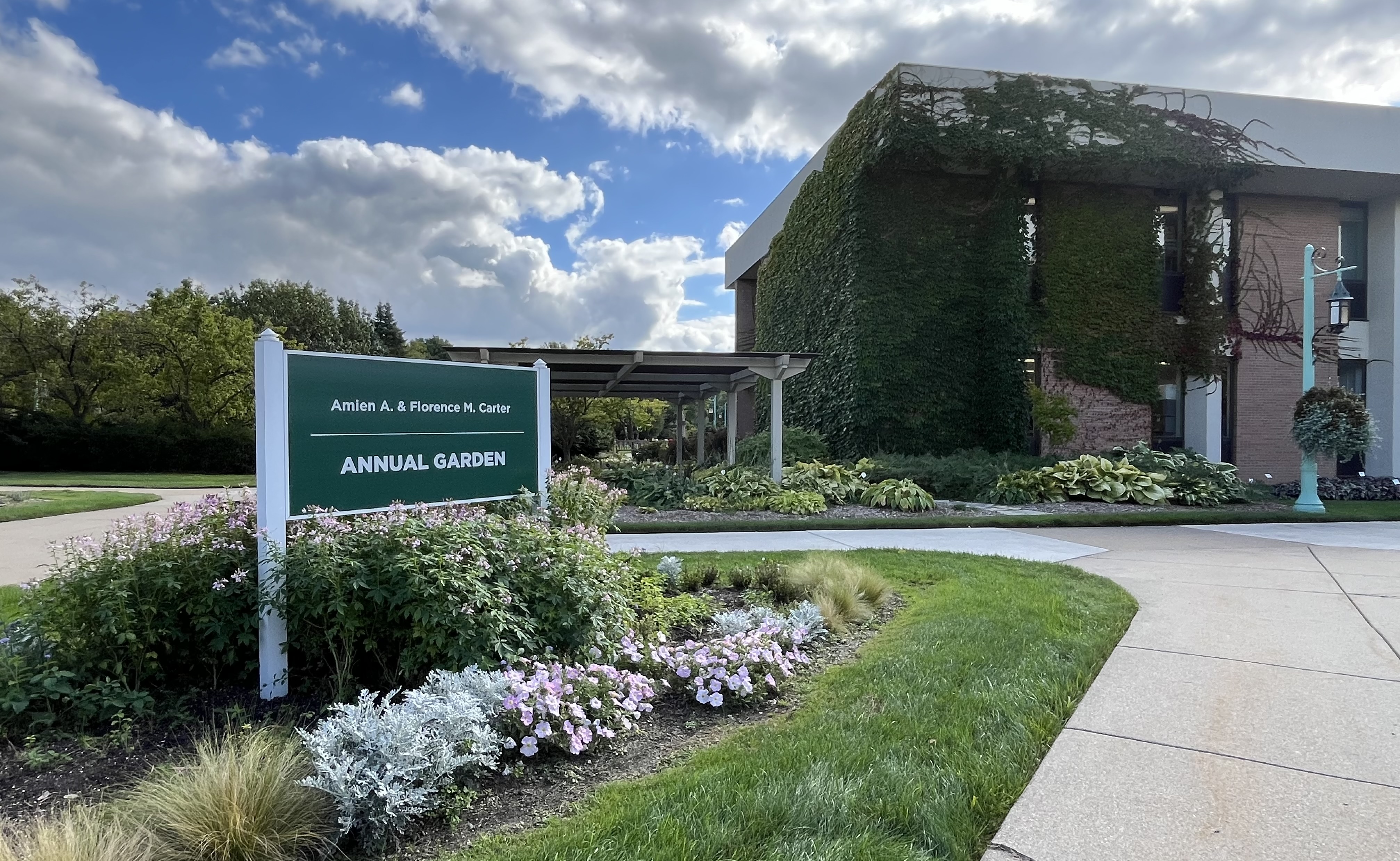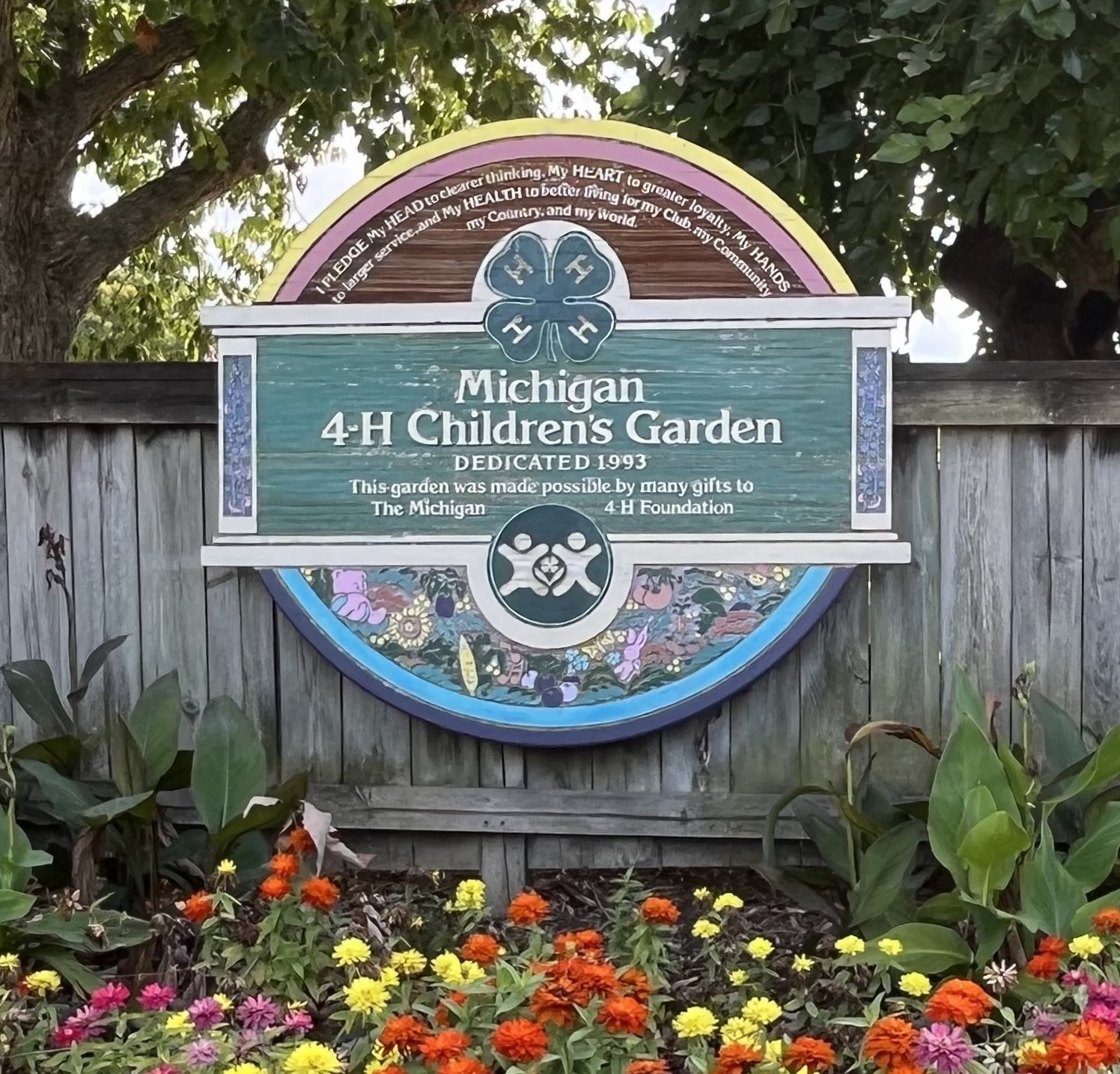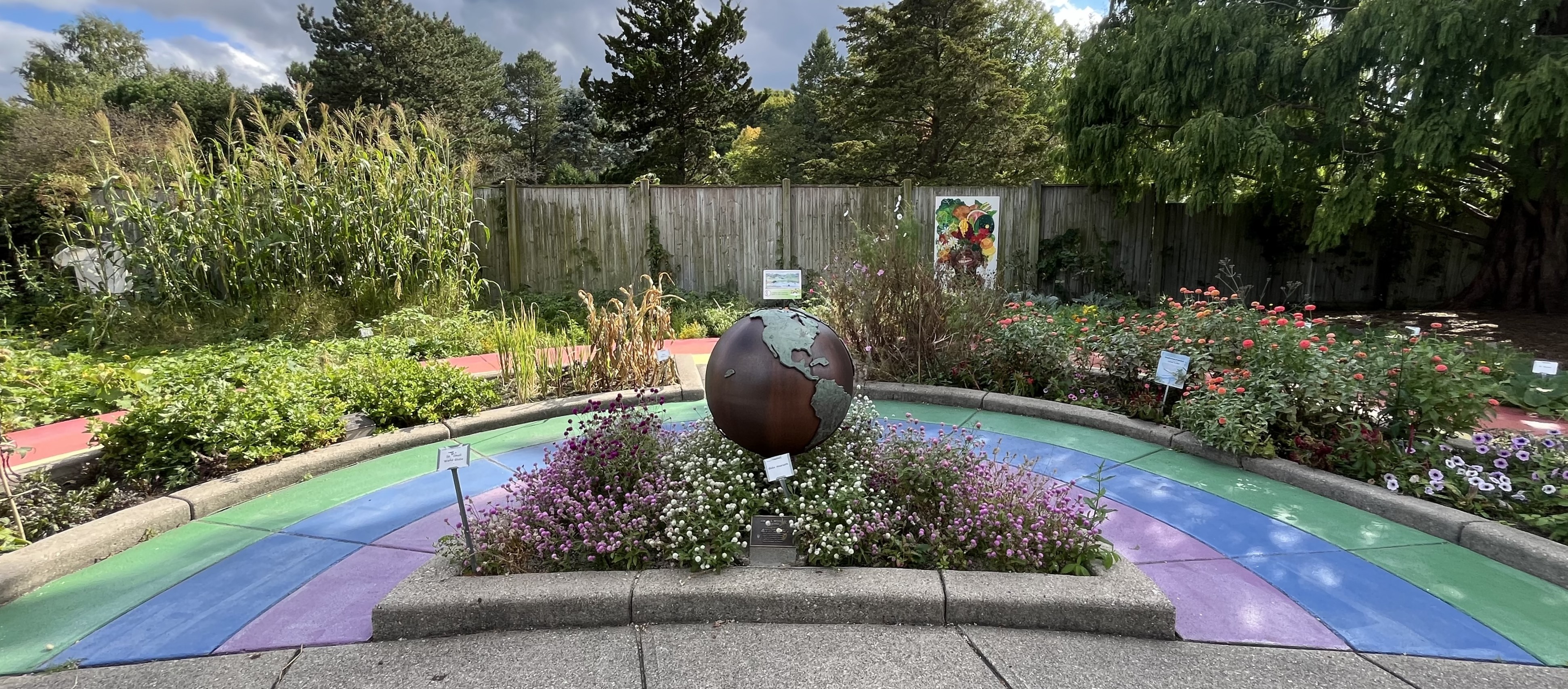New MSU Horticulture Gardens Curator poised to build on legacy of gardens
This August, CANR welcomed Mason McNair, Ph.D., as the new curator of the MSU Horticulture Gardens. Bringing a lifelong passion for horticulture, McNair seeks to build on the gardens' legacy while expanding programming and accessibility for visitors

This August, Michigan State University (MSU) and the College of Agriculture and Natural Resources welcomed Mason McNair, Ph.D., as the new curator of the MSU Horticulture Gardens.
McNair's passion for horticulture was ignited at a young age during a visit with his mother to the Juniper Level Botanical Garden in North Carolina. At six years old, McNair was initially persuaded to attend with ice cream but found the experience so captivating he was reluctant to leave. That visit sparked a profound appreciation for horticulture, prompting him to explore guidebooks and immerse himself in the natural world.

This early interest informed McNair’s academic trajectory, leading him to pursue his bachelor’s degree in horticulture at North Carolina State University, where he completed his first internship at the Plant Delights Nursery, part of the same gardens he came to cherish in his youth. McNair then moved on to the University of Georgia (UGA) for his graduate studies, where he worked with a population of redbud trees bred by one of his undergraduate mentors. His research focused on identifying genes responsible for observable traits to better understand genetic history and phenotypic expression.
During his Ph.D., McNair faced significant challenges due to the COVID-19 pandemic, including supply chain issues that resulted in the lack of crucial tools. Undeterred, he used a newly acquired 3D printer to repair broken parts and fabricate essential items. This initiative resulted in a collection of 3D-printed tools that were remarkably inexpensive compared to retail equipment. This led to his postdoctoral fellowship at Clemson University’s Pee Dee Research and Education Center.
In his new role at MSU, he will lead the Plant X Tech Lab, where he plans to continue developing low-cost hardware to accelerate plant science research. His vision includes implementing robotics, 3D printing (additive manufacturing), and phenomics to approach research in novel ways. He plans to automate tasks with robotic platforms (e.g. Opentrons) and precision agriculture systems (e.g. FarmBot). McNair hopes to employ this technology in plant imaging and studying plant growth development.

As he settles into his role, McNair watches, listens, and learns to help develop a long-term vision for the gardens. He knows his past experiences will help these beloved spaces continue to move forward.
“By assessing where the gardens have been, what they’ve been doing well and where they may have struggled, we can steer the gardens in a more productive direction, focusing on setting up the necessary foundations and infrastructure in hopes of solidifying a world-class horticultural installation at MSU.”
 Collaboration is at the heart of McNair’s approach, and he is eager to capitalize on new and existing partnerships. He’s already initiated with faculty and stakeholders, including Dr. Alan Prather, the interim director of the Beal Botanical Gardens at MSU. McNair emphasizes that while Beal and the horticulture gardens have different missions, they share the goal to effectively communicate science and provide a space for people to connect with the natural world. He sees opportunities for both gardens to align their programming.
Collaboration is at the heart of McNair’s approach, and he is eager to capitalize on new and existing partnerships. He’s already initiated with faculty and stakeholders, including Dr. Alan Prather, the interim director of the Beal Botanical Gardens at MSU. McNair emphasizes that while Beal and the horticulture gardens have different missions, they share the goal to effectively communicate science and provide a space for people to connect with the natural world. He sees opportunities for both gardens to align their programming.
Another key focus area for McNair is the Michigan 4-H Children’s Gardens, a space that offers children opportunities to understand the role plants play in our daily lives. The interactive space allows visitors to explore and learn by engaging with installations or participating in educational events. In its 31st year of operation, the 4-H Children’s Gardens, like the rest of the horticulture gardens, is fully funded by donations. Looking to the future, McNair wants to honor — and expand on — the legacy of the gardens.
“Many individuals have spent a long time bringing the 4-H gardens to fruition and meticulously curating the plants, installations, and art. I want to respect the work and maintain its incredible educational value today while recognizing the potential for amplification. This is an amazing community resource you don’t have to pay to visit. With the support of donors and the Michigan 4-H Foundation, we can transform it from an already great resource into something groundbreaking.”

The Michigan 4-H Foundation is a private 501c3 that provides funding for Michigan 4-H programs and the Michigan 4-H Children’s Gardens. Opened in 1993, the Michigan 4-H Children’s Gardens was the first garden in the United States developed specifically for the education of young children on a university campus. Today, the Michigan 4-H Foundation continues to support the Michigan 4-H Children’s Gardens thanks the generosity of donors, including several endowments which fund educational opportunities, garden upkeep, student internships, as well as a portion of staff salaries, among other things.
Drawing from his experience in gardens worldwide and his teaching-based research, McNair has already started brainstorming ways to enhance the visitor experience. He’s considering updates like better signage and expanding digital resources, which he believes could make information more accessible to audiences of all ages and backgrounds. McNair additionally hopes to expand programming in the 4-H Children’s Gardens, such as developing additional curriculum for STEAM education and allowing visitors to engage with the robotic systems used in his research.
“Every plant in the gardens offers an opportunity for a teachable moment, and that’s where the staff and I come in. We aim not just to make sure the gardens are pretty but that we can share information with folks who come through. We can allow everyone to be on equal footing to learn about the natural world around them in a safe, curated space.”
Information on related endowments
Annual support for the Michigan 4-H Children’s Gardens is provided by the following Michigan 4-H Foundation endowment funds:
- Albert A. Albright Memorial Fund
- Mary Ellen Brubaker Fund
- A. David and Rose M. Carlson Fund
- Mary F. Kelsey and Helen E. Stophlet Memorial Fund
- Raymond and Alice Mahoney Memorial Fund
- Mawby-Edison Family Fund
- Marvis Richardson Fund
- The Pete and Sally Smith Memorial Endowment
- Michael J. and Winifred Ann Tate Endowment Fund
- Taylor Tribute Fund
- Jane Lundeen Taylor Tribute Fund
- Woman’s National Farm & Garden Association, Michigan Division, Endowment
Annual support is also provided by the following Michigan State University Endowments:
- Rose Carlson Endowed Internship Program for the Horticultural Demonstration Gardens and the 4-H Children’s Garden
- Per G. Lundin Fund for the 4-H Children’s Gardens
- Smith-Marshall Family Endowment for Education in the Michigan 4-H Children’s Garden
- Sarah L. Proctor Educational Endowment at the 4-H Children’s Gardens
- Ceel and Ruth Van Den Brink Endowment



 Print
Print Email
Email






